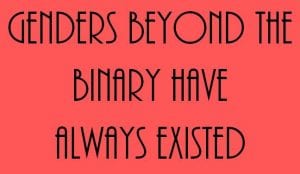This assignment was particularly challenging for me, as my computer does not allow me to highlight texts from the PDFs we have read this semester. Since I did not have anything saved to work off on, I began collecting quotes by scanning through the texts and simply pulling phrases that I liked or that stuck with me. As my list grew, I noticed that while the quotes I selected focused on varying topics, I was able to string them along and make connections from one another. In this blog post I will be listing the quotes I collected, but they can also be found on neatly laid out on my Instagram post https://www.instagram.com/p/Bw99aKrHsIv/
- Indigenous feminisms is… not a thing whose meaning is prepackaged and applicable across time and space. Indigenous feminisms are contingent upon the historical contexts and social relationships in which they are articulated as an ethic of responsibility, which I would suggest is grounded in the governance, territory, and culture of the polity but reaches out through an ethics responsibility across political, legal, and cultural borders to other communities and nonhuman beings.
-
-
- Indigenous Feminisms by Joanne Barker
-
- The heretofore-marginalized knowledge of Indigenous and Third World peoples is central to imagining alternatives to colonial capitalism and to more just connections between humans and nature. But it is imperative to be cognizant of the pitfalls and problematics of representing this knowledge, that is, of the political economy of knowledge production in order to guard against simplistic claims about decolonial ontologies and postcolonial futures.
-
-
- Spivak and Rivera Cusicanqui on the Dilemmas of Representation in Postcolonial and Decolonial Feminisms
-
I started off this assignment with quotes that center indigenous ontologies. While it does not focus on specific ontologies and epistemologies, it highlights the importance of relationality to the land and others (both human and other living and non living beings.) These quotes also mention the failed attempts to embrace indigenous ways, whether it be through romanticization, appropriation, or colonizers capitalizing off of stolen and rebranded knowledge. In addition, these quotes explain the importance of not portraying these ontologies and epistemologies as simple and homogenous, as they are specific to each community and varied. However, as the last quote highlights, the capitalist world we now live in could benefit greatly by implementing these ways. Under our capitalist system, profit is but before human and environmental needs, which hinders us in all facets of life (even economic as surplus leads to economic crises instead of relief).
- At best, what the United States displays toward Puerto Rico can be classified as “paternalistic toleration,” so called because the toleration is one extended by the majority as an act of self-restraint by the majority (as an act of social generosity) to share a social space with a culture that the majority believes does not merit to share such social space. For minorities, paternalistic toleration is often purchased at the heavy price of not being recognized as equal participants in the polity, ironically the very thing that toleration is meant to cure”
-
-
- A New Reality of Citizenship and Nation by Pedro A. Malavet
-
- The government forces us to live like roaches, always in the garbage. When we can’t produce in sweatshops to make them more money because of high unemployment rates; when we can’t buy their junk because they won’t give us credit to legalize the rip-off; when we’re no longer any use and become a threat of possible revolutionaries, they exterminate us like roaches, always in the garbage…
-
-
- From the Frontlines, Abortions by Gloria Colón (text from Through the Eyes of Rebel Women by Iris Morales)
-
The next two quotes I chose to focus specifically on Puerto Rico and their relation to the imperialist and capitalist United States, which places Puerto Ricans both on the islands and in the diaspora as inferior. These quotes also focus on the empty promises of the United States and themes of colonial gaslighting. In addition, the quote from Gloria Colón mentions the criminalization of poverty and consequential radicalization of Puerto Ricans.
- Recognizing the profound influence of racialization and gendering is essential to an adequate understanding of the past, to efforts to transform the present, and to strategies to envision and produce a different future.
-
-
- Coloniality of Gender and Power: From Postcoloniality to Decoloniality by Breny Mendoza
-
- We have the Third World woman holding on to her pregnant body, watching her already born children nibble on lead paint in place of food, watching the rats that gather to nibble on the toes of her children, worrying about having her insides ripped-up during an abortion.
-
-
- From the Frontlines, Abortions by Gloria Colón (text from Through the Eyes of Rebel Women by Iris Morales)
-
- “You’re nothing but a woman” means you are defective. Its opposite is to be un macho. The modern meaning of the word “machismo,” as well as the concept, is actually an Anglo invention. For men like my father, being “macho” meant being strong enough to protect and support my mother and us, yet being able to show love. Today’s macho has doubts about his ability to feed and protect his family. His “machismo” is an adaptation to oppression and poverty and low self esteem. It is the result of hierarchical male dominance.
-
-
- Borderlands, La Frontera by Gloria Anzaldúa
-
- I mean, when I see brothers off the block, hustlers, you know, talking about, “I got to deal with my male chauvinism,” when I see that man, I feel like we can do anything.
-
-
- Palante by The Young Lords
-
This next set of quotes I selected begins to discuss the inextricable intersection of gender in the oppression of Latinx people. This form of oppression, and its byproducts such as machismo, were created specifically not only to impose Anglo traditions, but to further divide the population. Through this, organizing mass movements becomes far more challenging. However, as the last quote from Palante highlights, there have been great strides to progress past this form of toxic masculinity, which serves to hinder Latinx men with in white social spheres and Latinx women with in male dominated social spheres. In addition, the other quote by Gloria Colón gives us a visual of the specific problems faced by Puerto Rican women, such as struggles to support a family in such poor living conditions, lack of proper reproductive care, and sterilization.
- There can be no discourse of decolonization, no theory of decolonization, without a decolonizing practice.
-
-
- Spivak and Rivera Cusicanqui on the Dilemmas of Representation in Postcolonial and Decolonial Feminisms (originally found in “Ch’ixinakax utxiwa: A Reflection on the Practices and Discourses of Decolonization” by Silvia Rivera Cusicanqui)
-
- FALN [Armed Forces of National Liberation] solidarity with and on behalf of Palestinian self-determination served to illuminate the colonial reality of Puerto Rico by bolstering the claims of the political prisoners that they were “freedom fighters, not terrorists.”
-
-
-
In Solidarity, Palestine in the Puerto Rican Political Imaginary by Sara Awartani
-
-
I purposely chose these last two quotes to conclude this assignment. The first quote reminds us that decolonization is not a metaphor, and in order to go through the process of decolonization there not only needs to be a plan, but actions to follow. In addition, the second quote refers to groups who have become more militant as a result of demands not being met. These groups are criminalized and therefore have a shared sense of public disapproval. However, instead of being discouraged, they are able to use solidarity work to empower and validate each others struggles.

